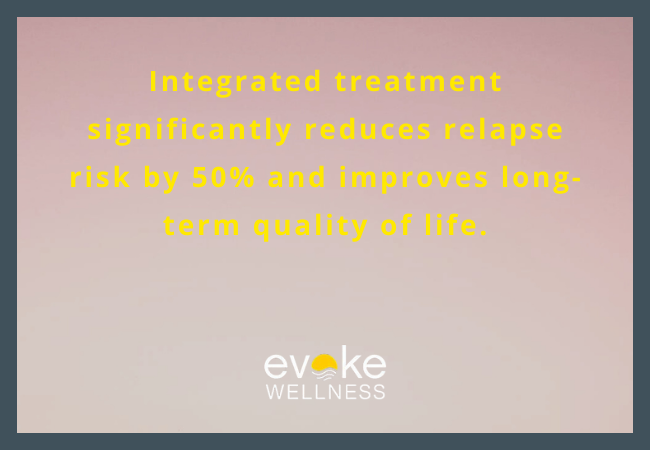Completing rehab marks a major milestone on the road to recovery, but it’s not the end of the journey. After leaving the structured environment of inpatient care, many individuals face the challenge of transitioning back to everyday life, where old habits and triggers may still exist. While the support and healing gained during rehab are invaluable, ongoing care and planning are essential for maintaining lasting recovery.
The end of residential rehab represents just the beginning of a new chapter in recovery. It’s important to recognize that sustaining long-term sobriety requires continued commitment, planning, and the right tools to navigate the challenges of daily life. In this blog, we will explore the crucial steps to take after completing residential rehab and how you can set yourself up for success in the ongoing journey of recovery.
The Transition from Residential Rehab
Leaving a treatment program can feel daunting. After being surrounded by a supportive team and fellow clients, returning to the outside world can feel isolating. The real world often presents its own set of challenges, including old friends, places, and situations that might trigger cravings or emotional responses. This is why it’s crucial to develop a solid aftercare plan and continue with support after leaving the rehab facility.
To begin, many individuals find it helpful to maintain relationships formed during rehab. These can be fellow clients who understand the recovery journey and can provide valuable peer support when needed. Additionally, staying connected with family members and friends who have supported you through the process is essential for maintaining accountability and emotional well-being.
Another key factor in the transition process is creating a safe environment. If possible, it’s helpful to make lifestyle changes to avoid environments or people that could trigger old behaviors or temptations. Some individuals choose to relocate to a new area, adopt healthier routines, or engage in new activities to stay focused on their recovery.
Aftercare: The Key to Long-Term Recovery
While residential rehab provides intensive treatment, it’s essential to recognize that recovery doesn’t end there. Aftercare plays a pivotal role in preventing relapse and ensuring continued progress. The goal of aftercare is to provide ongoing support and resources to help individuals navigate life’s challenges without returning to substance use.
At Evoke Wellness at Hilliard, we offer a Rehab Aftercare Program in Ohio that ensures individuals have the continued care they need after leaving treatment. These programs are designed to help clients transition smoothly back to their day-to-day lives, offering support and tools for maintaining recovery during the challenging months that follow inpatient care.
Aftercare programs are tailored to each individual’s needs and may involve continued therapy, group support, relapse prevention strategies, and lifestyle coaching. This ongoing support is vital to preventing relapse, as it helps individuals stay connected to the recovery community and reinforces their commitment to long-term sobriety.
Key Components of Aftercare Programs
1. Ongoing Therapy and Counseling
After completing rehab, continuing therapy is essential to addressing the underlying causes of addiction. Whether through individual therapy or Group Therapy Program in Ohio, ongoing counseling helps individuals identify triggers, develop healthier coping mechanisms, and continue healing from past trauma. For those with dual diagnoses, therapy may focus on managing both addiction and mental health disorders. Intensive Inpatient Treatment Program in Ohio can also be part of this continued care for individuals who need more structured support in the transition phase.
2. Sober Living Homes
Sober living homes offer a structured and supportive environment for individuals continuing their recovery. These homes allow individuals to live in a substance-free setting with peers who are also working toward sobriety. Sober living homes provide valuable structure, support, and accountability during the transition from rehab to independent living.
3. 12-Step and Support Groups
Engaging in 12-step programs like Alcoholics Anonymous (AA) or Narcotics Anonymous (NA) provides individuals with a community of like-minded people committed to staying sober. These groups help reinforce accountability and provide a platform for sharing experiences and receiving support from others who understand the challenges of recovery.
4. Relapse Prevention Planning
One of the most important aspects of aftercare is developing a Relapse Prevention Plan. This plan outlines potential triggers and high-risk situations, and it includes strategies for avoiding or coping with these challenges. By planning ahead, individuals can feel more confident about managing stressors and maintaining sobriety.
5. Life Skills Development
As individuals recover, they must rebuild not only their sobriety but their lives as a whole. Life skills programs offered as part of aftercare help individuals develop skills like time management, stress management, and effective communication. These skills support long-term success and promote emotional well-being, allowing individuals to live a fulfilling and healthy life.
Maintaining Accountability and Support
Accountability is a vital part of any aftercare plan. Maintaining relationships with supportive individuals—whether through therapy, family, or peers in recovery—ensures that you are not alone in your journey. Having someone to turn to when challenges arise can make a significant difference in preventing relapse and maintaining progress.
Many individuals find it helpful to have a sponsor or accountability partner. This person can help them stay on track, offer guidance during tough moments, and provide encouragement when it feels difficult to continue.
Staying Committed to Recovery Goals
Setting achievable goals is a powerful way to stay focused and motivated after rehab. It’s important to outline both short-term and long-term goals that support your recovery. This might include maintaining sobriety, pursuing personal growth, building healthier relationships, and finding a meaningful career.
In the early stages of recovery, the primary goal is often maintaining sobriety and avoiding relapse. However, as time goes on, goals will evolve to include other areas of personal growth. Whether it’s improving physical health, advancing in a career, or improving mental health, setting these goals helps maintain momentum and ensures that recovery is about more than just staying sober—it’s about thriving.

Understanding the Need for Flexibility in Recovery
Recovery is a process, not a destination. There will likely be ups and downs along the way. As you move forward, it’s essential to stay flexible and adaptable. If you encounter setbacks, don’t be discouraged. The key is to keep pushing forward and adjust your recovery plan as needed.
Remaining committed to your recovery doesn’t mean expecting perfection. Rather, it’s about being willing to adjust when necessary and staying focused on your long-term goals.
Why Choose Evoke Wellness?
Choosing the right aftercare program is a crucial decision that can impact your long-term success in recovery. At Evoke Wellness at Hilliard, we provide more than just a treatment plan; we offer a comprehensive approach to aftercare that ensures you have the support, tools, and guidance you need to thrive after residential rehab.
Our Residential Treatment Program in Ohio is designed to provide clients with the most effective tools to achieve lasting sobriety, and our aftercare services continue that support. Our compassionate and experienced team is here to walk alongside you in every stage of your recovery, from initial detox to ongoing therapy and relapse prevention.
By choosing Evoke Wellness at Hilliard, you are joining a recovery community that understands the challenges you face and is dedicated to helping you overcome them. We believe in your ability to succeed and are committed to providing you with the ongoing care and support you need to build a life free from addiction.
Conclusion
Life after rehab can be a difficult transition, but it doesn’t have to be a daunting one. With the right planning, support, and aftercare, individuals can successfully navigate life after treatment and maintain their sobriety. Developing a solid aftercare plan, staying engaged in therapy and support groups, and remaining committed to personal growth are all essential parts of the recovery journey.
At Evoke Wellness at Hilliard, we understand the challenges that come after residential treatment. That’s why we offer customized aftercare programs that ensure continued success. Whether you’ve completed a Drug Addiction Treatment Program in Ohio or are seeking further support, our team is here to help you every step of the way. Call us today at 866.430.9267 to get started on the next phase of your recovery journey.
Frequently Asked Questions (FAQs)
What is aftercare in addiction recovery?
Aftercare refers to the ongoing support and treatment that individuals receive following the completion of a residential rehab program. It typically includes therapy, support groups, relapse prevention strategies, and life skills training to help maintain long-term sobriety.
Why is aftercare important after residential rehab?
Aftercare is essential because it helps bridge the gap between the structured environment of rehab and the challenges of everyday life. It provides continued support, helping individuals avoid relapse and build a sustainable recovery.
How long does aftercare last?
The duration of aftercare varies depending on individual needs. Some people may engage in aftercare services for several months, while others continue for a year or more. Flexibility and consistency are key.
What types of aftercare programs are available in Ohio?
Ohio offers various aftercare options including outpatient therapy, sober living homes, 12-step groups, and continued access to individual and group therapy sessions. Programs may be tailored to treat specific needs like dual diagnosis or trauma recovery.
Can I work or go to school while in an aftercare program?
Yes, most aftercare programs are designed to support individuals as they return to work, school, and daily responsibilities. Many services are offered during evenings or weekends to fit into a typical schedule.
Is aftercare necessary if I feel strong in my recovery?
Even if you feel confident in your recovery, aftercare provides valuable reinforcement. Recovery is an ongoing journey, and continued support helps maintain progress and manage unexpected challenges.



